Search
Did you mean: Amphora?
Search Results
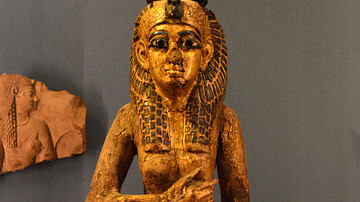
Article
The Gifts of Isis: Women's Status in Ancient Egypt
An inscription on an Egyptian papyrus dating from the 2nd century CE relates that the goddess Isis, bestowing gifts on humanity at the beginning of time, gave as much power and honor to women as she did to men. This brief passage reflects...
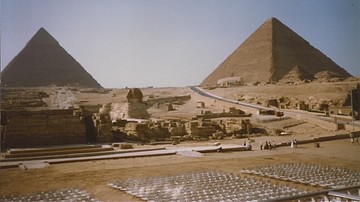
Article
Ten Ancient Egypt Facts You Need to Know
Ancient Egypt is defined as the civilization which flourished in North Africa between c. 6000-30 BCE – from the Predynastic Period in Egypt (c. 6000 - c. 3150 BCE) through the Ptolemaic Dynasty (323-30 BCE) before Egypt became a province...
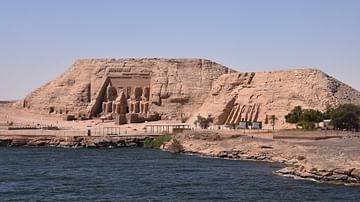
Article
Sailing on Lake Nasser towards Abu Simbel
In ancient times, the First Cataract at Aswan marked the southern frontier of Egypt. Beyond lay the land of Nubia, which stretched along the river Nile from the First Cataract southwards for about 250 kilometres (155 mi). This region, known...
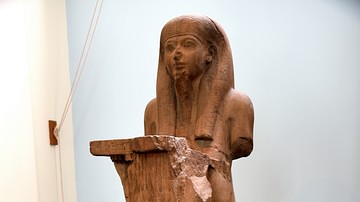
Image
Statue of the Nile God Hapy
Statue of the Nile God Hapy, from Thebes, Karnak, temple of Amun-Ra, Egypt, 22nd Dynasty, reign of Osorkon I, c. 924-889 BCE. The fleshy body symbolizes the Nile's fertility. Hapy holds a table of offerings, from which hang geese, quails...

Definition
Ankhsenamun
Ankhsenamun (born c. 1350 BCE and known as Ankhesenpaaten in youth) was the daughter of Akhenaten and Nefertiti of the 18th Dynasty of Egypt. She was married to her father and may have borne him one daughter, Ankhesenpaaten Tasherit ('Ankhesenpaaten...
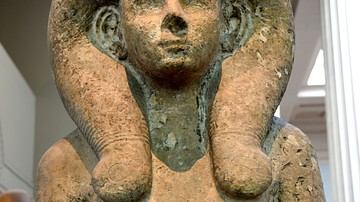
Image
Queen Ahmose-Merytamun
The cobra emblem on the forehead and the Hathoric wig confirms this is a queen. Just as pharaohs were deemed an incarnation of Horus, so did queens embody the goddess Hathor. Ahmose-Merytamun was a sister and wife of Amenhotep I. The bust...
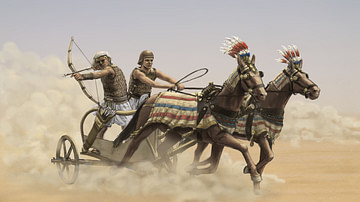
Definition
Ancient Egyptian Warfare
The Narmer Palette, an ancient Egyptian ceremonial engraving, depicts the great king Narmer (c. 3150 BCE) conquering his enemies with the support and approval of his gods. This piece, dating from c. 3200-3000 BCE, was initially thought to...

Definition
Egyptian Obelisk
An obelisk is a stone rectangular pillar with a tapered top forming a pyramidion, set on a base, erected to commemorate an individual or event and honor the gods. The ancient Egyptians created the form at some point in the Early Dynastic...
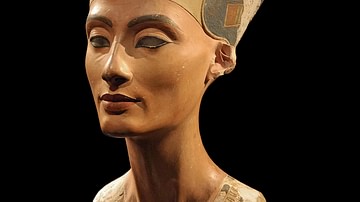
Definition
Nefertiti
Nefertiti (c. 1370 - c. 1336 BCE) was the wife of the pharaoh Akhenaten of the 18th Dynasty of Egypt. Her name means, `the beautiful one has come' and, because of the world-famous bust created by the sculptor Thutmose (discovered in 1912...

Article
Ancient Egyptian Agriculture
Agriculture was the foundation of the ancient Egyptian economy and vital to the lives of the people of the land. Agricultural practices began in the Delta Region of northern Egypt and the fertile basin known as the Faiyum in the Predynastic...